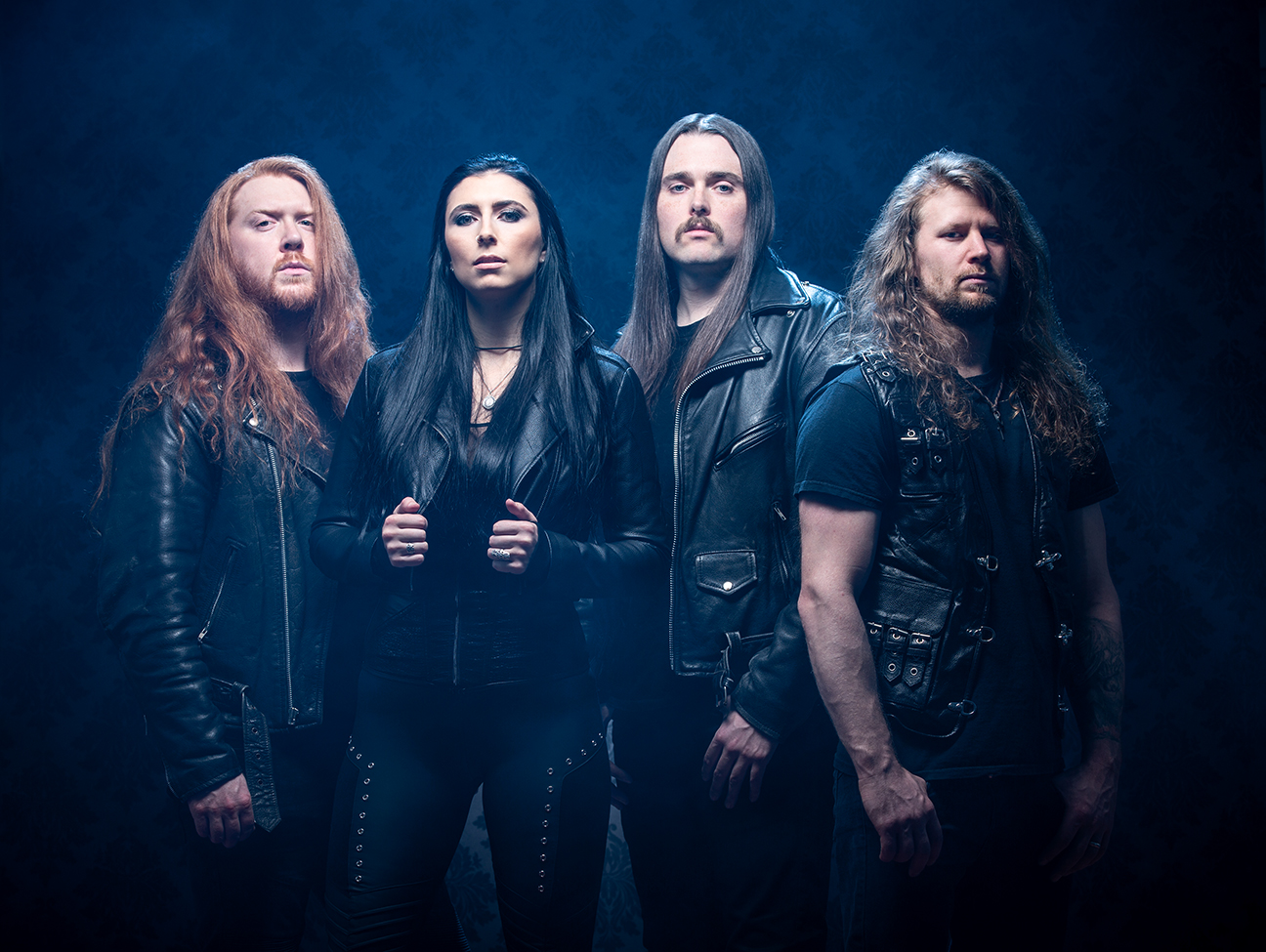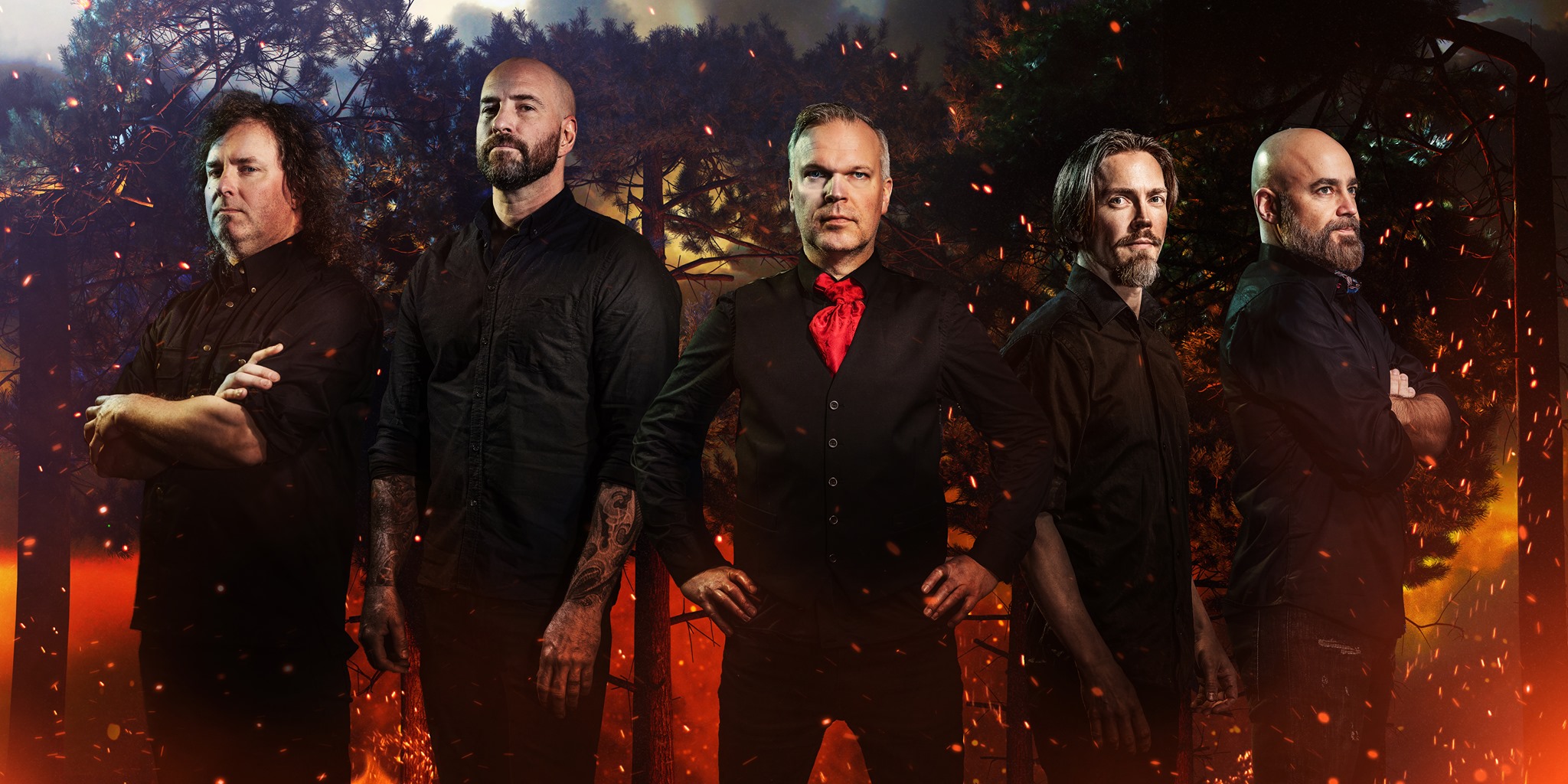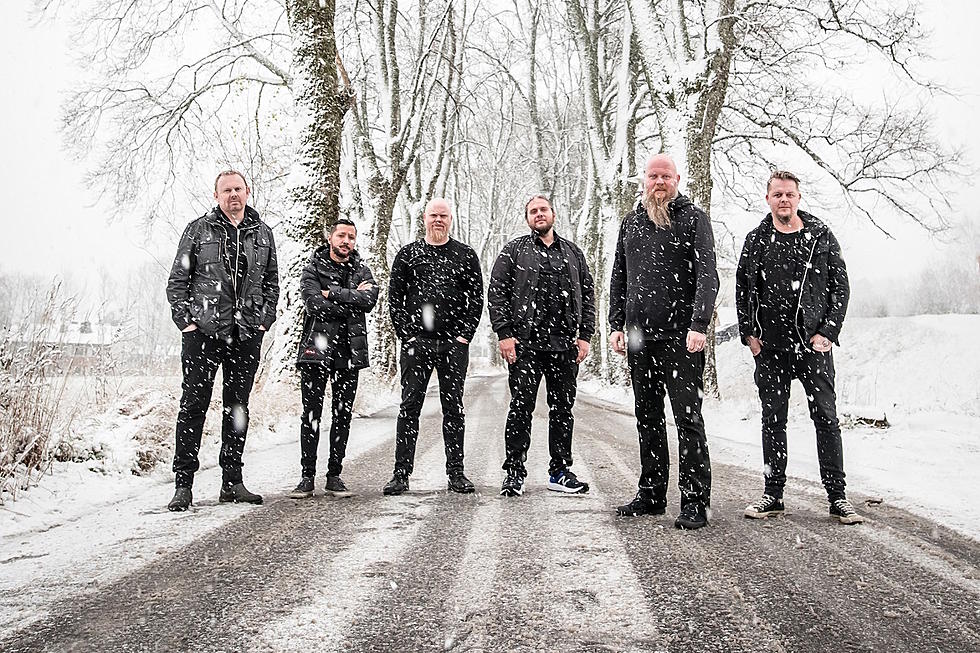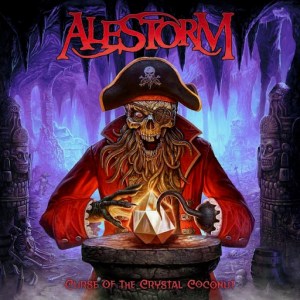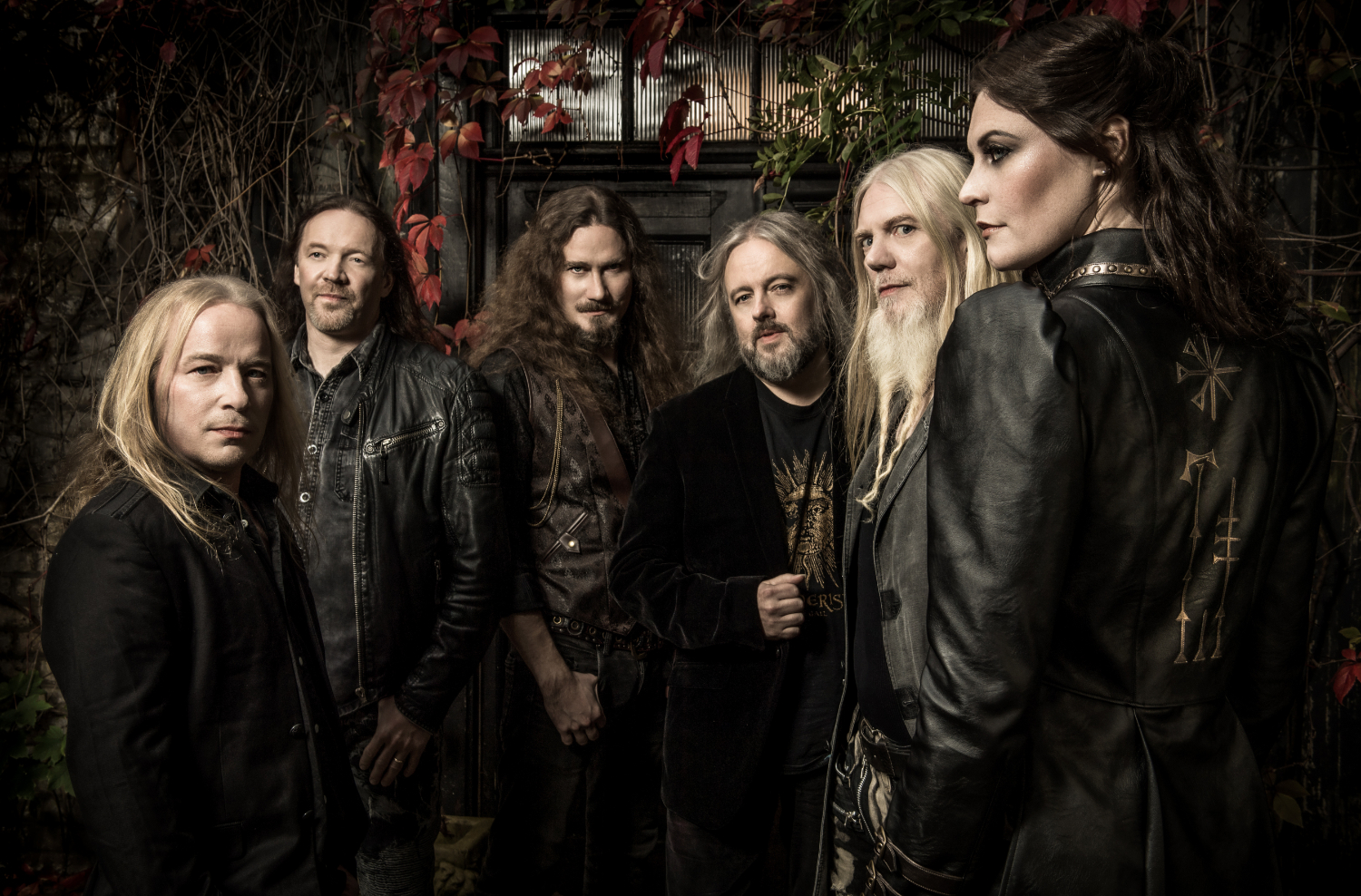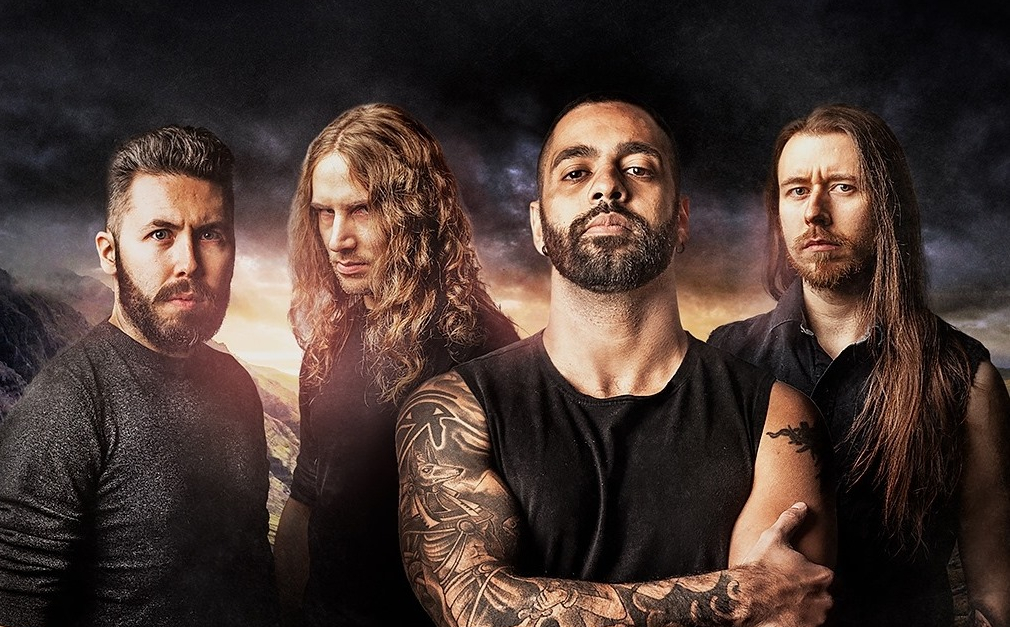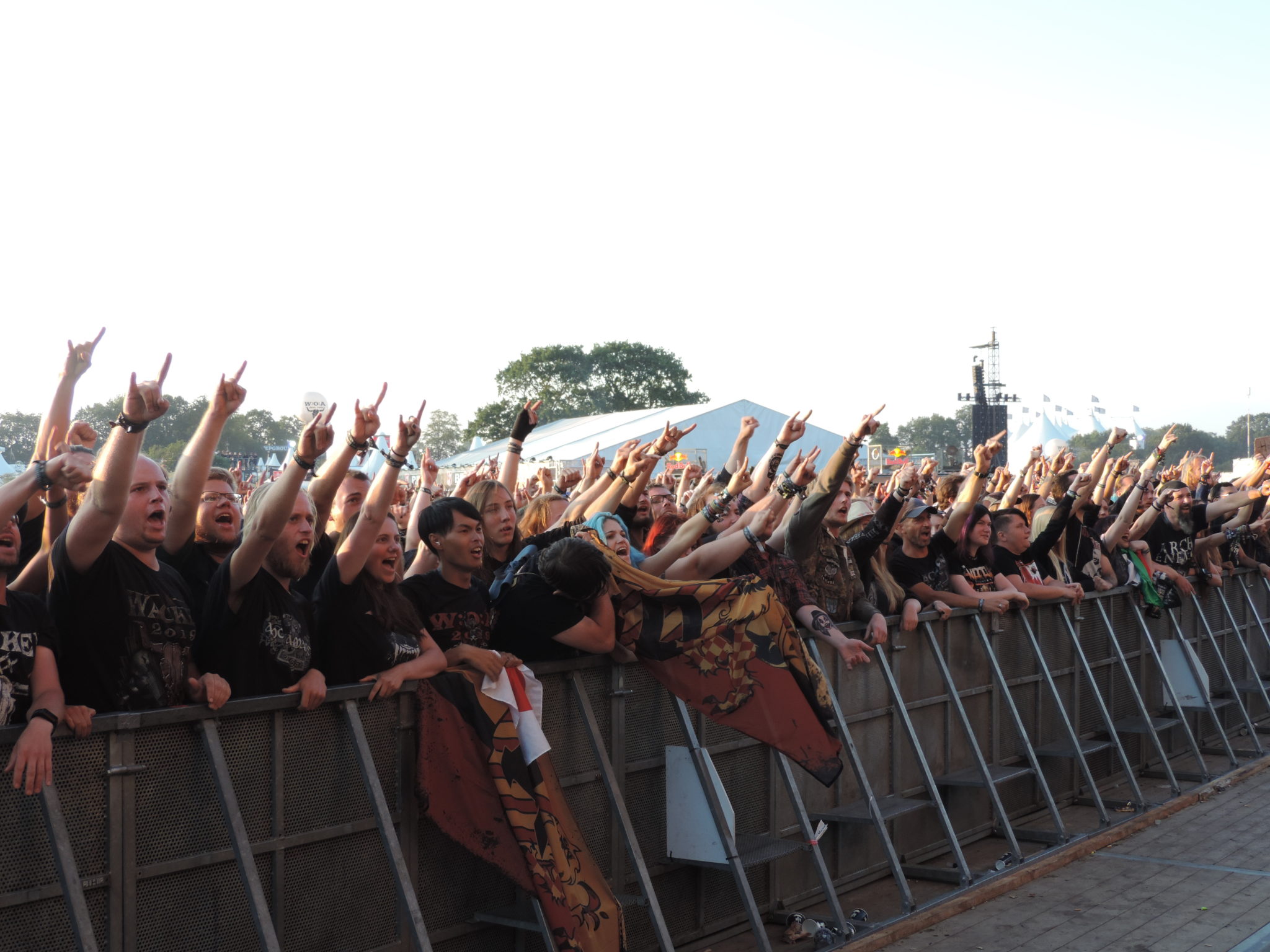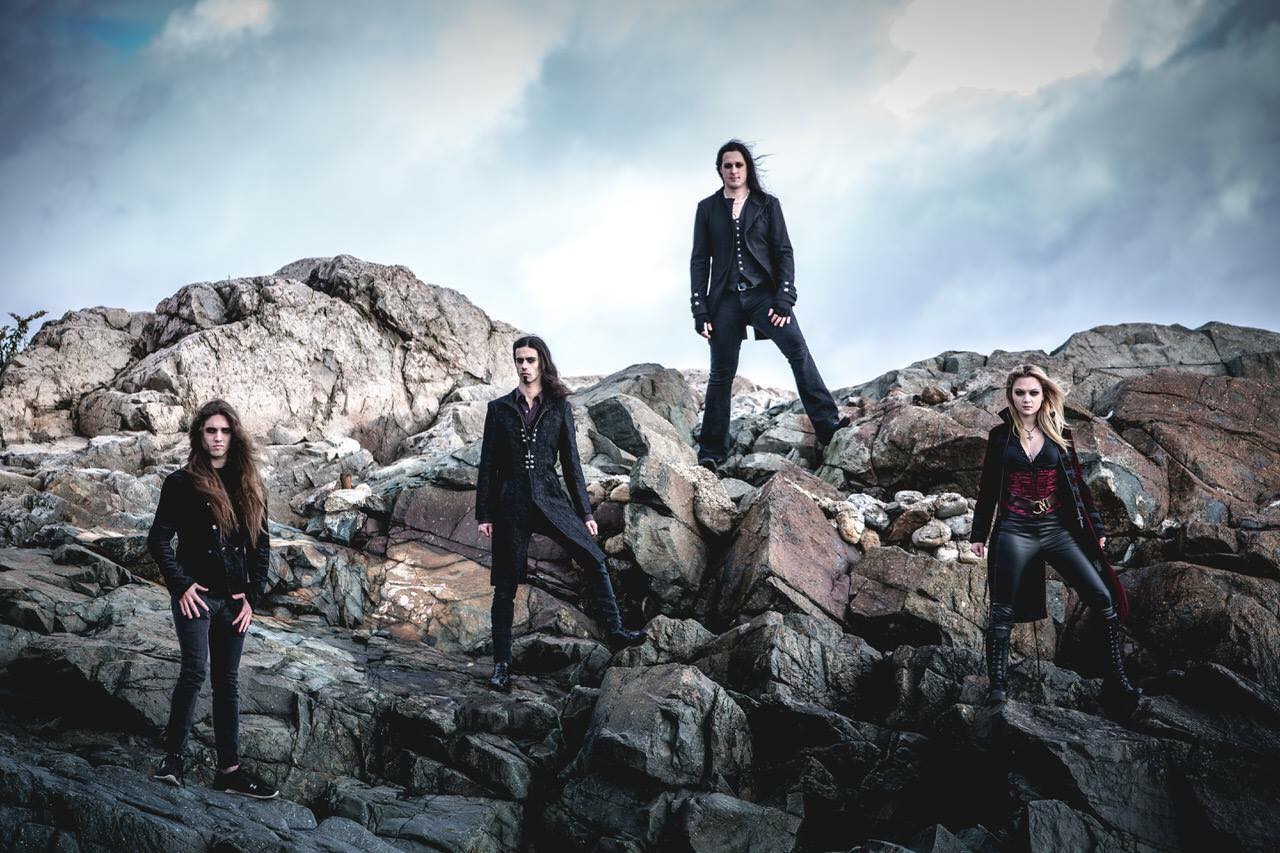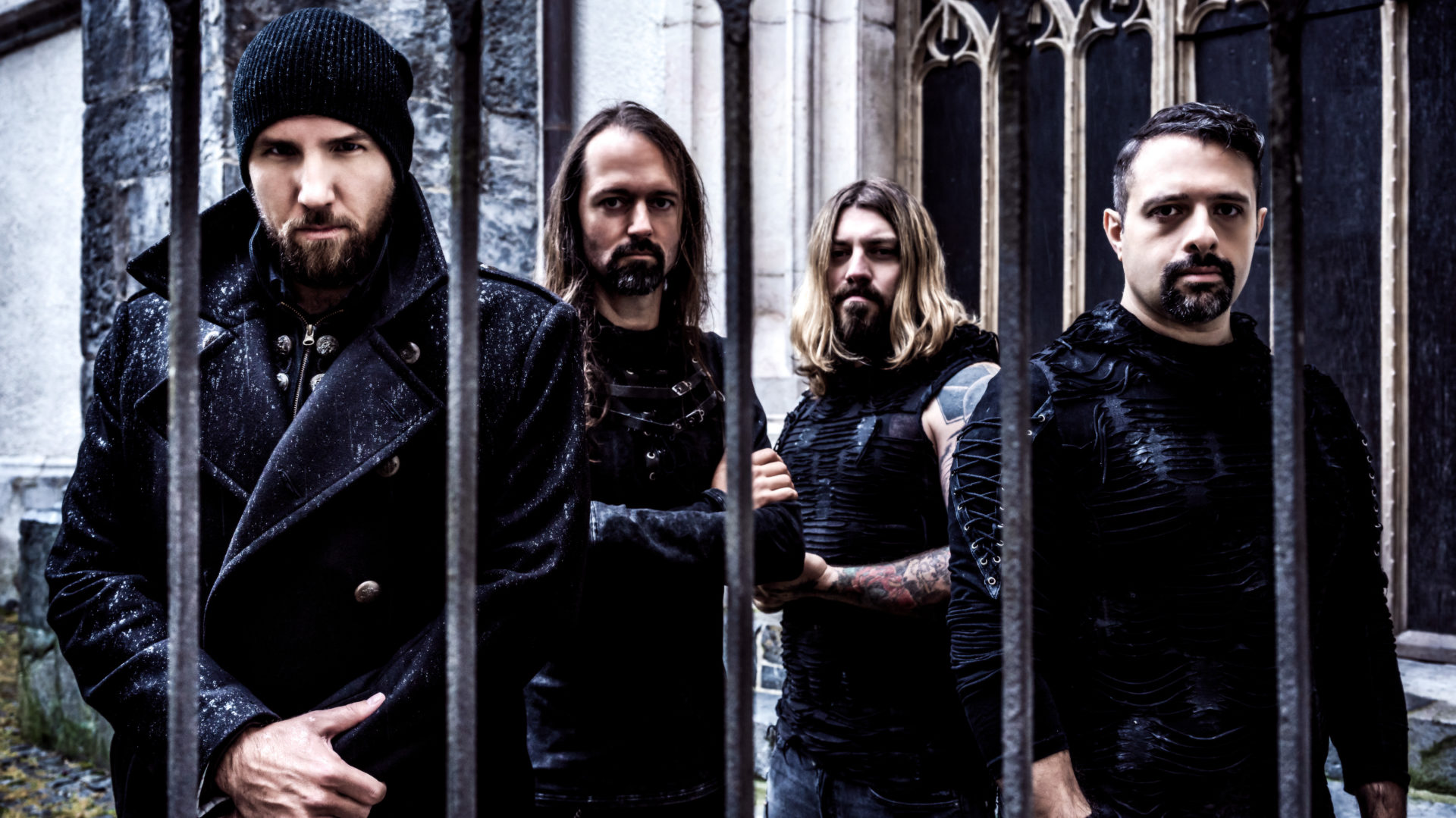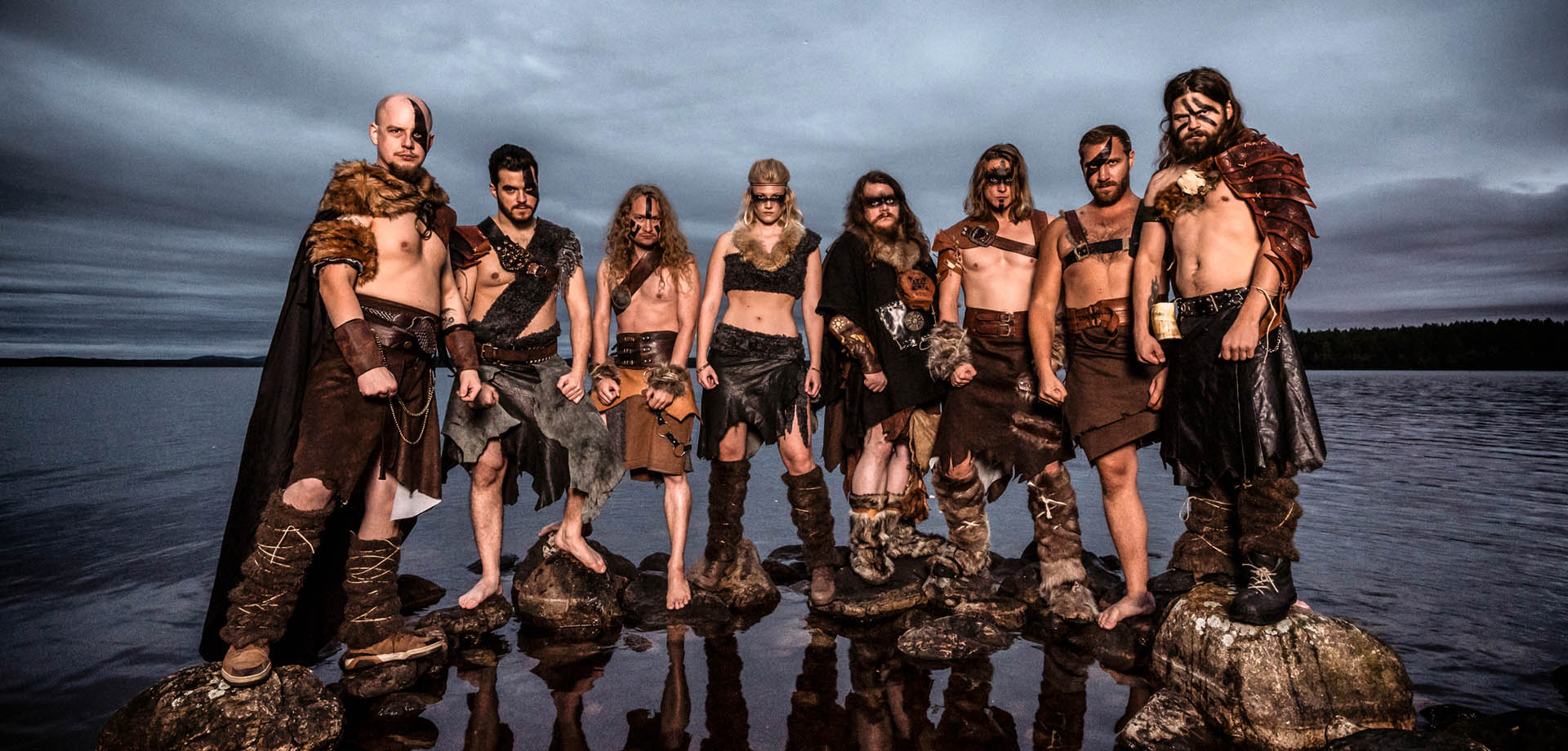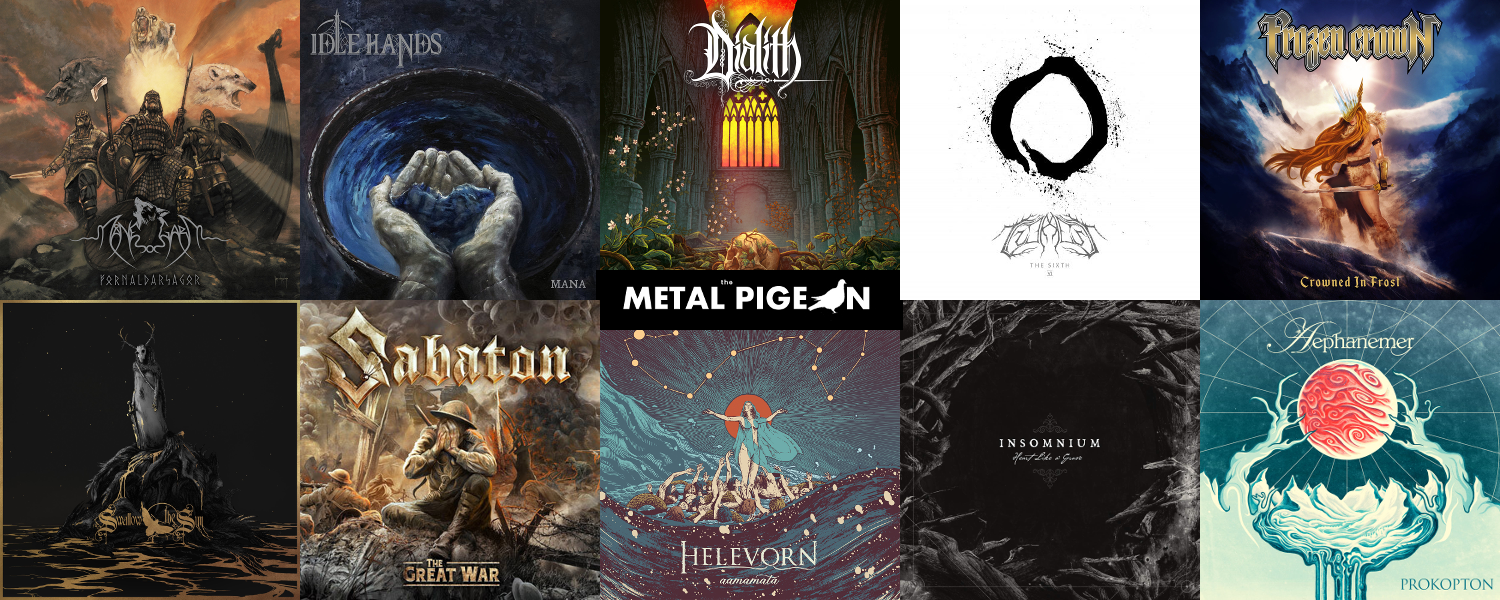Hail to everyone. I know its been awhile. I took a bit of an unexpected hiatus for a few months here when I ran right into the first real bout of writer’s block I’ve ever faced while writing this blog. I tried to give myself time to sort it out, even discovering in the midst of recording a recent MSRcast that maybe I was just devoid of inspiration due to not having been to a show in awhile, but the most important thing I figured was to not put myself under pressure to write anything just to have something new out. That point about not having been to a show in ages (Amorphis in autumn of last year to be exact) is one to speak about for a bit, because its only been now during this pandemic ensured period of no fun that I’ve come to realize just how much going to shows were like my energizer battery. Not just as a metal fan either, but for life in general, they were events to get excited about and look forward to, to plan over and revel in when their date actually arrived. Shows are also breaks in the often slow, miasma of the everyday grind; concentrated blasts of life that can positively affect your mental well being —- people who don’t go won’t know, but they’re the best anti-depressant around. Their absence has slowly chipped away at my enthusiasm level for nearly everything, particularly paired with not having hung out with friends in person for ages, it all just adds up. And as mentioned before, we have kept the MSRcast going during this time, but even doing that digitally is just a disruptive headspace from the way we’ve normally done it, in person at the MSRcast studios. During our virtual fantasy football draft recently, a friend of mine replied to my hope of “Should be a fun season” with “Man nothing is fun anymore”. And yeah, I get that sentiment. I realize that things could be worse for all of us, but as they are now, its been a tough slog of a year, and that has to affect most of us mentally.
We’re lucky then as metal fans, that the bands we’re interested in, either as fans of or just curious about seem to keep pushing through this dark saga (heyyo!) with creative output and interesting content to soothe us however temporarily. Besides new music, I know there’s a ton of bands doing digital only shows, selling e-tickets to them, and I hope some of those have been great for whomever bought tickets. The Amorphis show was very good, my cohost Cary sharing his virtual ticket with me so I could check it out. I particularly enjoyed Blind Guardian’s set at the lavishly produced Wacken World Wide digital festival a few weeks ago, where they played as convincing and passionate a performance as I can remember seeing from them. Their setlist was loaded with nothing but classics, and they debuted a new song that was as compelling as anything it was sandwiched between, boding exciting things for the upcoming album. Recently, Therion just announced that we’ll be getting their first new proper studio album in a decade in early December, dubbed Leviathan, and I couldn’t be more excited. I had previously expressed fears that Christofer Johnsson’s commitment to staging his Beloved Antichrist opera would take too long and continue to delay another Therion record, but I’m glad that he maybe took my advice (hah!) and prioritized it over anything else. There’s a lot of intriguing records coming down these last few months of this hell year, so at least we have plenty of distractions to keep us occupied and perhaps even inspired as we close out these next few months. But right now, I’m going to do a little summer recap here of stuff that’s come out since I’ve been on hiatus —- mind you this isn’t all that I listened to, but I’ll be honest, I devoted a great deal of time to simply listening to whatever I wanted to listen to and not worrying about the release calendar so much. Please let me know in the comments below if there’s something I missed that I need to pay more attention to however.
Unleash The Archers – Abyss:

You might remember that UtA climbed the mountain to claim my 2017 Album of the Year spot with their aptly named Apex, a bracing collection of trad meets power metal that hit hard with aggression and married epic musical passages with unforgettable hooks. It earned that number one spot by simply being my most listened to album of that year, often an undeniable factor in determining which release actually belongs there amidst favoritism bias and whatnot. I wasn’t that wild on UtA before the album, probably like so many others, but became a fan after hearing it and was incredibly eager to hear how they’d follow it up, and had to give a little nod to the doubts I’d see surfacing in discussions online about whether or not this band had another excellent album in them. After all, it took them four tries to go from relatively mediocre to spectacular —- the question lurking underneath all of that success surrounding Apex was whether or not it really the start of the band realizing their sound and potential, or merely a fluke. If you’ve been reading this blog for awhile, you know that watching and/or predicting what bands do in situations like this, following up a revered and successful record and analyzing the decisions made is kind of my wheelhouse, the nerdiest part of my fandom. But I’ll confess I had no idea what UtA could or should do beyond simply repeating the formula for Apex, because I couldn’t see anything in their past that they should return to, so I did think they were somewhat liable to fall flat on their face for this album just given the limited vision of what they could do.
Turns out that Brittney and company were thinking a few steps ahead, and instead of replicating the sound of Apex, they used its concept to springboard this album into another world of sound entirely. The Matriarch and the Immortal’s struggle that defined the loose concept of Apex continues here, but whereas it was bound to the grittiness of nature and the Earth on that album, the story here shifts to the expansiveness of space and planetary scale. The shrewd move here is that this shift (clearly illustrated in the differences in the album artwork) have allowed the band to make subtle but strong changes to their sound, adding in a strong keyboard/synth dimension that would have sounded out of place on Apex, but is woven into the tapestry of the cosmic reaching storyline laid out on Abyss. With this combination, the shift to what is clearly a lighter toned sound on Abyss, devoid of the aggressive, Iced Earth-ian tendencies of its predecessor is far more natural of a transition —- coming across less like a calculated move to avoid repeating themselves and rather a way to branch out their sound into uncharted territory. All they had to do to ensure this would work is to simply bring the hooks, and they’ve delivered in spades on that front. From the jump, segueing from the very effective intro “Waking Dream” we get one of the band’s best ever songs in the title track, a nearly seven minute epic that is built around Hayes incredible vocal prowess. She carries the song on a hook built around her ability to draw out and bend words to her vocal melody almost effortlessly. I love the transition change up at the four minute mark that she uses to usher in the dueling guitar solos from Andrew Kingsley and Grant Truesdell. These guys deserve special mention for delivering the goods throughout this album, particularly in how they’ve brightened up their tones and made adjustments to their approach from the gun-metal grey riffage to bright, somewhat psychedelic inspired motifs they’ve woven in all throughout here.
The standout track “Through Stars” is a vivid example of this new sound world for UtA, a song built on a gorgeous keyboard synth backdrop that glitters and sparkles while the band takes an almost laid back, reactionary approach as counterpoint, slightly behind Scott Buchanan’s rock steady beat. The combined group harmony vocals here are really nice, particularly in the closing minute of the song, with what sounds like a multitracked Hayes along with Kingsley and Truesdell combining for an almost Beach Boys invoking approach. We hear that same tendency in “Legacy”, where I get really strong Coheed and Cambria vibes throughout from Hayes vocal performance to the unorthodox, progressive spaciness to the song despite all the extremity of riffs and barrages of drum fills. Now I actually enjoy a little bit of what Coheed and Cambria do, particularly in their more pop-punkier moments, so this could be a hurdle for anyone who doesn’t. But as I mentioned before, this sonic shift towards a brighter palette really works here, these songs seem like natural extensions of the band’s sound into territory that they’ve only previously hinted at in the briefest of glimpses. There’s still aggressive trad metal fury to be found however, as “Soulbound” is a personal favorite from the album with its partially growled vocals (one of the guitarists I’m guessing?) interjected with Hayes on the verses over a bed of thrashy riffs. I love the extra highs we hear on her multi tracked vocals that are distanced about a half a second behind the lead vocal, it just adds to the intensity. I’d recommend avoiding the distracting, perplexing video for “Faster Than Light” and just sticking to the song itself, because its a superb track, the chorus boasting one of their catchiest moments on the album with a guitar solo that Yngwie would be proud of.
I was surprised at just how well the inter-band duet between Hayes and Kingsley worked on “Carry The Flame”. with the latter boasting a rich, hard rock voice that really works within the shiny arena rock chorus that’s tucked away at the core of this song. There are strong Dokken vibes throughout this song (and that’s a positive dammit) with a little 80s invoking sparkle that really put their combined vocals over the top on that fat, massive hook. Its this kind of adventurous spirit that dominates this entire record and has made it a pleasure to take in. So often it seems like bands follow up excellent albums with something that lacks cohesion or direction, or worse, tries to do too much. Credit where it’s due, UtA did neither and have delivered an album that, dare I say it, might be an overall better album than Apex —- more diverse, more ambitious, yet still delivering the goods in terms of memorable sequences and massive hooks. I’m genuinely surprised but happy about it, and it’s saying something that after so many listen throughs of Abyss, I’m still enjoying it as its playing right now as I finish this review. Normally that’s about the time when I’m relieved to take a break from hearing an album so much, but I can see myself playing this again tomorrow, and the next day. This paired along with the band’s smartly executed cover of the Stan Roger’s classic “Northwest Passage” last year, demonstrates that the band has clearly moved into a confident, reassured phase of their musical career, and maybe it’s time to give them the benefit of the doubt in the future.
Judicator – Let There Be Nothing:

One of the leading lights in the burgeoning North American power/trad metal movement that’s coalesced over the past few years, Judicator has run into some disheartening news lately —- namely, that founding guitarist and co-songwriter Tony Cordisco has recently left the band. I’m not sure what the reasons are exactly, the statement he and the band released seem to suggest geography issues as well as the classic “personal differences” cited by Cordisco. Its well known around the power metal community that vocalist John Yelland is outspoken about his views on certain socio-political topics, so there’s been some idle speculation that some of that might have played a part. For me, I’m not that bothered by that stuff (if I were, I probably wouldn’t listen to Iced Earth, or Megadeth for that matter), but what does concern me is the loss of the band’s principal music writer and how it will impact their future output in either direction. We recently saw Serenity weather this exact storm fairly well when founding guitarist Thomas Buchberger left the band after War of Ages, but they were able to rebound with the strong, vocal melody driven Codex Atlanticus, thanks to Georg Neuhauser’s ability to step in as the principal songwriter. The band’s sound changed however, and after delivering one fine album, we’re starting to see some slightly diminishing returns in the memorable riffs department, with their sound heavily attenuated to his vocals now rather than sharing a balance with the guitars. For Judicator, this news coming on the heels of releasing their follow up to the year end list making The Last Emperor has to rock the confidence of most fans. The band recently released a statement of their own mentioning that their songwriting for the next album will be headed up by Yelland and new guitarist Balmore Lemus (who’s also in NovaReign) and that they’re already into the songwriting process for it. At least its nice to know they’re not going to be twisting in the wind for awhile, but Cordisco’s way with a riff was a huge, huge part of the band’s sound in addition to Yelland’s Hansi Kursch like vocal ability.
His swan song with the band, Let There Be Nothing, is a testament to his skill as a riff-based progressive power metal songwriter. Cordisco’s signature blend of aggressive, USPM-tinged riffing with EUPM informed splashes of color in his progressions and motifs continues in a far more expansive and adventurous way than he’s ever demonstrated before. While the songs on The Last Emperor were tight, compact slices of propulsive, hooky as hell prog-power, Cordisco and Yelland chose to veer hard in the opposite direction here, favoring lengthier compositions and more patient build ups. We see that from the outset in the title track with its delicately building intro passage and series of riff progressions that transition to the main riff motif, a Cordisco gem in its own right, building a bed for Yelland to closely follow with some inspired, powerful layered vocal leads. There’s a tempo downshifting bridge towards the back end of the song that changes up the routine and introduces some headbanging worthy passages into the mix, these more proggy passages being a recurrent element throughout the album. The lengthiest song here, “Amber Dusk” is almost Iced Earth-ian in its implementation of these various down/up shifts in tempo and riff progression changeups, complete with one of Cordisco’s most colorful leads to date, a focused spiraling flurry of notes bouncing off his guitar like a tightly compressed spring let loose. The shorter songs on the album provide that link to The Last Emperor’s compulsively hooky addictiveness, with “Gloria” being one of the band’s all-time best offerings in that regard. The song is a split between Yelland’s vocal hook and some uptempo riff progressions where Cordisco lays down a bed for guest lead vocalist Mercedes Victoria to shine. I’m on the fence about whether I like this album more than The Last Emperor, but absolutely sure that its very, very good in its own right. As a finale, Cordisco is bowing out at the top of his game.
Finntroll – Vredesvävd:

Finntroll are back with their first album in, jeez, seven years. And though that certainly is a long time between releases, its actually okay in my view for the band to have taken the extra time to seemingly wait for some inspiration to flow. Its not that 2013’s Blodsvept was a bad album by any means, but it was heavy on the humppa influences and major keys in a way that was just continuing more of the same that they had delivered on Nifelvind three years prior. I’m not against that particular musical vein in principal, but it has to be accommodated appropriately, with the right amount of brutality to counter its sickly sweet tendency to overwhelm a listener with the audio equivalent of a tummy ache. My personal experiences with Finntroll have been back and forth and confusing, first being introduced to the band way back in 2001 with Jaktens Tid (dating myself more and more every time I look backwards it seems) and having seen them live a few times since then. Their best live outing here was on the tour supporting Ur jordens djup in 2007, a brutal, no-frills, attitude filled show that was heavy on the black metal presence in their sound, seemingly a rejection of the folk metal genre that was exploding after the success of “Trollhammaren”. The last time I saw them however, in 2014 on an ill-fated night, they were in full on Korpiklaani mode, boasting plastic elven ears and leaning heavy on the humppa, with a crowd that was largely made up of the kinds of people who didn’t seem to typically attend metal shows. I guess somewhere along the way the band made adjustments geared towards the audience that was showing up for one side to their sound. For all the reasons I dislike most gimmicky folk metal in favor of the rustic, natural sounding stuff that I tend to champion, I find Finntroll more to my liking when they lean towards their heavier, blackened side —- and thankfully, that is what they’ve done with Vredesvävd, their most unadorned, straight ahead blackened folk offering in their entire career. Sure the Finnish folk elements are there, and that’s fine, but they’re counterbalanced by an ample dose of Watain-esque black metal fury, such as on the ripping “Att döda med en sten”. I’ve enjoyed listening to this album more than I expected I would, maybe solely due to the heavier shift the band has made in their sound. Whatever it is, its been a welcome return to a sound I’ve not really enjoyed in a long, long time.
Oceans of Slumber – Oceans Of Slumber:

Coming back with their fourth album and their first after a major lineup change which saw three members depart and new guys join the team, are Houston’s own Oceans of Slumber. Founding members Sean Gary (guitars, harsh vocals), Anthony Contreras (guitars), and bassist Keegan Kelly said adieu, and incoming members Semir Ozerkan (bass), Jessie Santos (guitars), and Alexander Lucian (guitars) arrived just in time for the creation process of the band’s “Mark 3” era self-titled debut. I’ve long been critical of bands delivering self-titled albums that aren’t their debut, and this is no exception (give the album a title, its not that hard), but I suppose a massive transfusion of half your band’s roster is as good a reason as any. And though the self-titled mid-career album is supposed to signal a rebirth of sorts, possibly a redefining of a band’s sound, or a return to their roots —- what we get here is really the band picking up where they left off with Winter and The Banished Heart. To my ears, its more of a blending of those two, returning a bit of the brighter, more major key melodicism of the former with the bleak, depressive tone of the latter. This is most concisely heard on the album standout “A Return To the Earth Below”, where we get bright, swirling, chiming psychedelic guitars in the first half of the song as vocalist Cammie Gilbert glides over the top. The doomy guitars in the hook that jut in suddenly are a strong counterpoint, and help form one of the band’s most memorable refrains to date, and the combination serves as a segue to the far more doom-tempoed second half of the song. On “Pray For Fire”, one of the more epic length cuts here, the band plays to their strengths in marrying Opeth-ian acoustics to dreamy melodies that build up to a propulsive, rhythmic hook bed that works spectacularly well thanks to Gilbert’s dexterity as a vocalist. And the band’s song choices and execution of covers has been impeccable to date, and their take on Type O Negative’s “Wolf Moon” here might actually be superior to the original. I’ve on the whole enjoyed this record way more than The Banished Heart, even though it lacks a moment as transcendent as the title track of that aforementioned album —- the new record is aided by a brightening of their sound, and I think maybe even the band has realized that they sound way better dallying with both darkness and the light.

